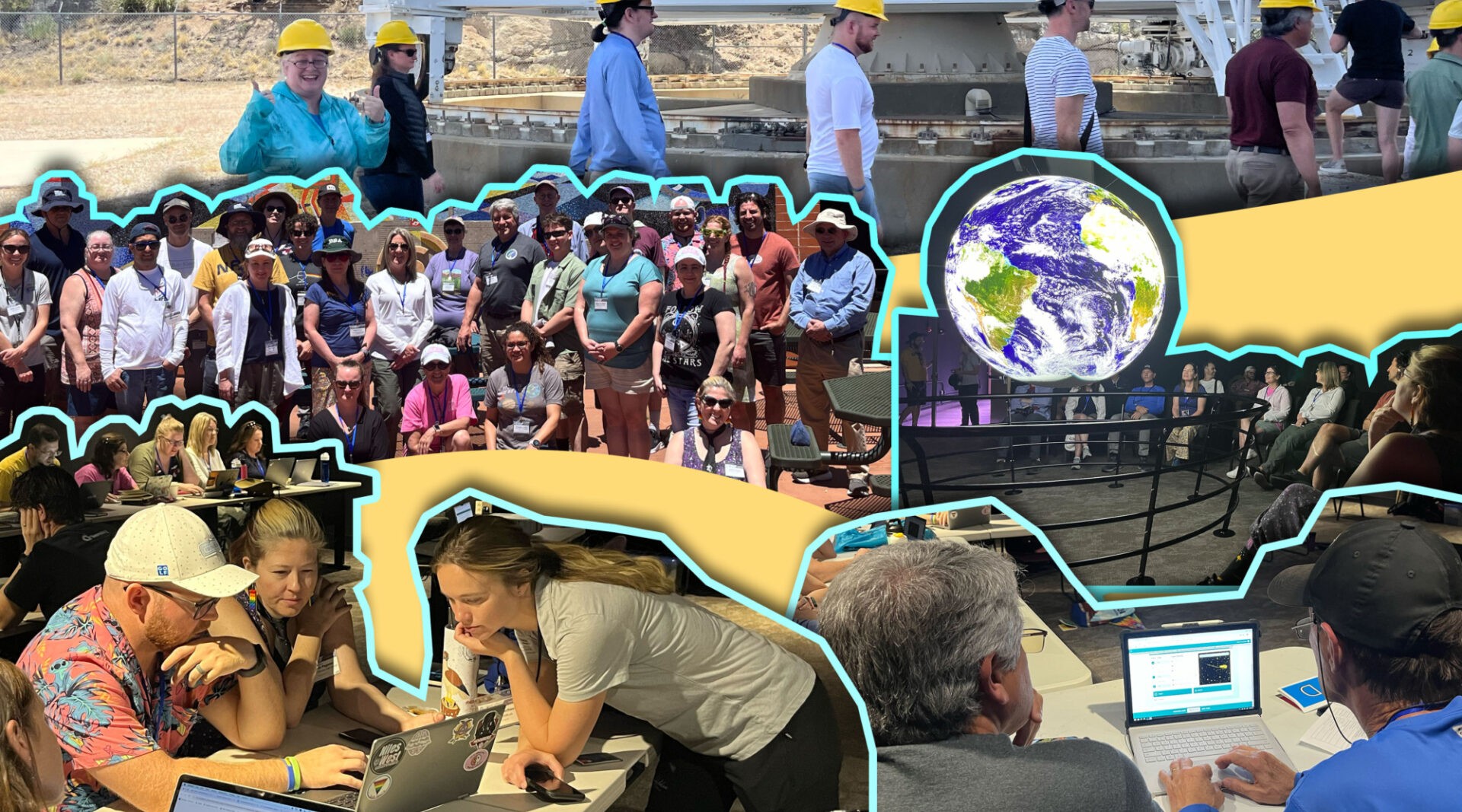Rubin’s First Summer Stars Workshop
Contributed by Fernanda Urrutia, Chile Coordinator for the NSF-DOE Vera C. Rubin Observatory Education and Public Outreach team
For any astronomy enthusiast, the opportunity to visit the site where some of the world's most important telescopes are installed is a wonderful gift. The first group of teachers who participated in "Summer Stars: Teaching Astronomy with Rubin Observatory," received such an opportunity recently when they traveled to Arizona to spend three nights at NSF Kitt Peak National Observatory (KPNO), home to over a dozen optical and two radio telescopes. During the weeklong workshop the teachers also got hands-on experience with Rubin Observatory’s interactive classroom investigations, and learned about the extensive support materials available to help them easily implement the investigations in their high school and early college classrooms.
As a member of Rubin Observatory’s Education team, I helped plan and host the "Summer Stars" workshop along with colleagues from Rubin and NSF NOIRLab. The workshop took place June 17-21, 2024, with 24 teachers from across the United States participating in a week filled with astronomical activities.
The week began at the Rubin Observatory headquarters in Tucson, AZ with an introduction on how Rubin will help answer some of our biggest questions in astronomy. The teachers attending the workshop got an overview of the Rubin education program and a demonstration of Rubin’s interactive investigations, which are designed to bring real Rubin data into classrooms.
The next day we packed our bags and headed to Kitt Peak, about 56 miles (90km) southwest of Tucson in the Schuk Toak District on the Tohono O'odham Nation. The teachers were excited to be immersed in the operations and technology of a modern working observatory — and to escape the heat of the Arizona desert. Once we arrived at the summit, the group toured the facilities and learned about the historical relationship between KPNO and the Tohono O’odham Nation. That night we accompanied the astronomers during their observation run on the 3.5-meter WIYN telescope, and a group of teachers also enjoyed a spectacular stargazing session with the Visitor Center telescopes.
Throughout the week, the Summer Stars program offered visits to the various telescopes situated at Kitt Peak, including the UArizona ARO 12-meter Telescope and the Very Long Baseline Array Dish. Through these experiences, the teachers learned about the technology and techniques used to collect data and make astronomical discoveries. Our agenda also made time for vibrant and engaging discussions about how to bring Rubin’s interactive materials to their classrooms, inspiring students to explore STEAM careers and opportunities in astronomy. When we asked if they thought Rubin’s investigations would benefit their teaching, one enthusiastic teacher said, “The investigations are applicable to several units of the astronomy curriculum that I currently teach. They also provide alternatives for increased active learning in the classroom.”
At the end of the week, the group returned to Tucson a little tired from all the action but satisfied with all they had learned and experienced. Back at Rubin headquarters, the teachers shared their experiences as astronomy educators and reflected on how this workshop was useful for the upcoming school year. The workshop facilitators felt joy at seeing the first Summer Stars group (of what we hope will be many) return home happy, leaving parting messages like, “This workshop was exactly what I was hoping for and desperately needed! I feel much more secure as an astronomy educator now that I have seen these materials,” and, “The investigations all do a great job of being engaging and challenging, but also scaffolded, collaborative, based on real data, and practical.”
We’re grateful to the many people from Rubin and NOIRLab who helped us organize this successful and impactful event. We hope to come back recharged in 2025 for another edition of “Summer Stars: Teaching Astronomy with Rubin Observatory.”.

